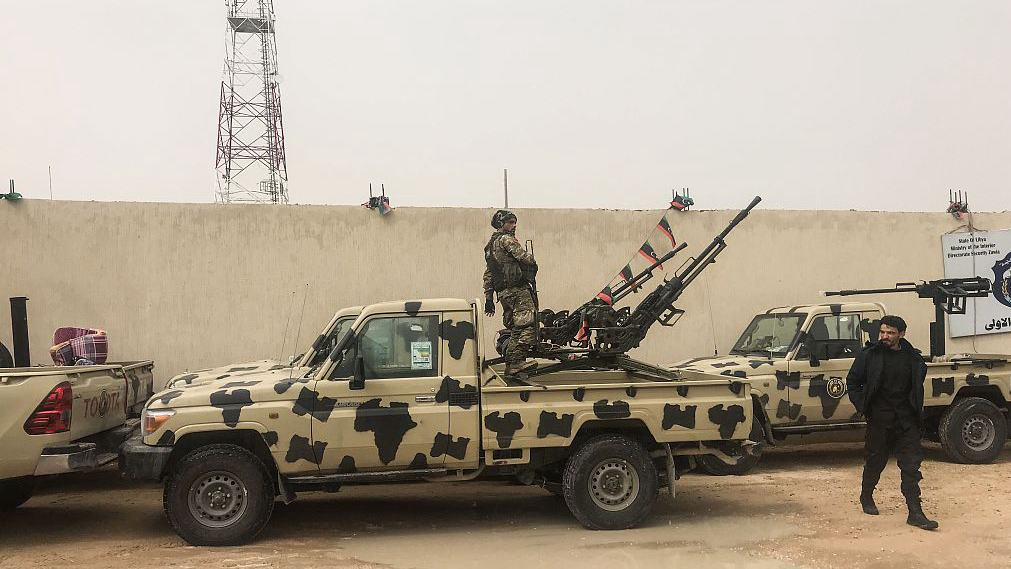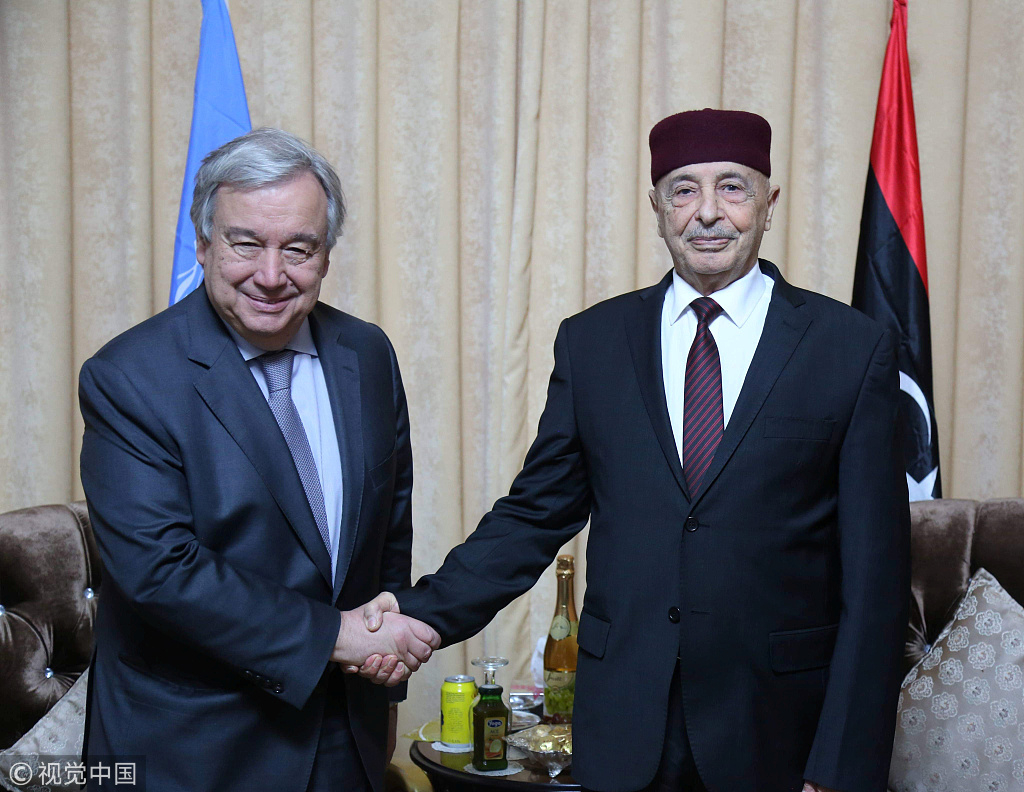
Opinion
07:31, 07-Apr-2019
Libya crisis is due to NATO's intervention
Adam Garrie

Editor's Note: Adam Garrie is the director of the UK-based global policy and analysis think tank Eurasia Future and co-host of talk show "The History Boys." The article reflects the author's opinion, and not necessarily the views of CGTN.
For all intents and purposes, Libya has ceased to function as a normal state ever since NATO intervened to overthrow the internationally recognised government in 2011. Since then, Libya has failed to produce a government that is capable of unifying the nation but instead has been home to rival regimes, multiple terrorist organisations, slave traders and gangs of both local and foreign bandits who are all wrestling for control over the country's natural resources.
At present, the wider region surrounding Tripoli is the location of a pitched battle between the Western-backed Government of National Accord (GNA) and the Libyan National Army led by Khalifa Haftar, a field marshal who is backed by a Libyan government based in the eastern city of Tobruk. Earlier this week, Haftar ordered to advance on the GNA-held Tripoli. UN Secretary General António Guterres was in the city during the fighting with the mission to rally support for a national reconciliation conference but was unable to bring about a ceasefire. The battle continues to rage.
Making matters all the more bizarre is the fact that Haftar is, in fact, a U.S. citizen who first moved to America in 1990 after deserting his duties in Libya. Haftar's current Libyan National Army is backed by major U.S. allies in the Arab world including Egypt, the UAE and Saudi Arabia. And yet, Haftar's enemy is a Tripoli-based government that has received diplomatic recognition from Washington and the European Union.

Aguila Saleh, Libya's parliament president, shakes hand with Secretary General of the United Nations António Guterres in Tobruk, Libya April 5, 2019. /VCG Photo
Aguila Saleh, Libya's parliament president, shakes hand with Secretary General of the United Nations António Guterres in Tobruk, Libya April 5, 2019. /VCG Photo
Prior to NATO's war on Libya in 2011, the situation was very different. The country was politically united, it was at peace with its neighbors. It had good relations with sub-Saharan African nations, with most Asian nations and with the major European powers.
After 2003, Libya and the U.S. began a long-awaited rapprochement which saw two declared enemies cooperate against common terrorist threats. But in 2011, an overly zealous NATO decided to change all of this by intervening militarily in a country that would have otherwise been able to combat any and all provocations through lawful internal mechanisms.
As Libya was not threatening any foreign power in 2011, NATO had no business in becoming involved in the country's domestic affairs. And yet, the fanaticism of the U.S., UK and French leaders of the time lead to a military intervention that even Barack Obama later admitted was the biggest mistake of his presidency.
This mistake was one that produced similar results to NATO interventions in many other countries. Iraq remains a much more dangerous, less united and materially poorer place than it was prior to the U.S. led war of 2003. The republics of the former Yugoslavia have likewise had difficulty since the 1990s. Ukraine and Syria remain bitterly divided places that are both materially poorer and far more dangerous than they were before major western nations decided to meddle in their internal affairs.
One can therefore objectively say that every time the major western powers use their military might or the forces of political meddling to change the internal conditions of a foreign country, things uniformly become worse.
Libya remains one of the prime examples of a nation that has been utterly devastated by NATO's interventionism. Now, the new battle between a U.S.-backed government and a U.S. citizen backed by key U.S. allies reveals just how inexplicable the divisions of Libya have become in the aftermath of a totally unnecessary NATO war.
(If you want to contribute and have specific expertise, please contact us at opinions@cgtn.com.)

SITEMAP
Copyright © 2018 CGTN. Beijing ICP prepared NO.16065310-3
Copyright © 2018 CGTN. Beijing ICP prepared NO.16065310-3